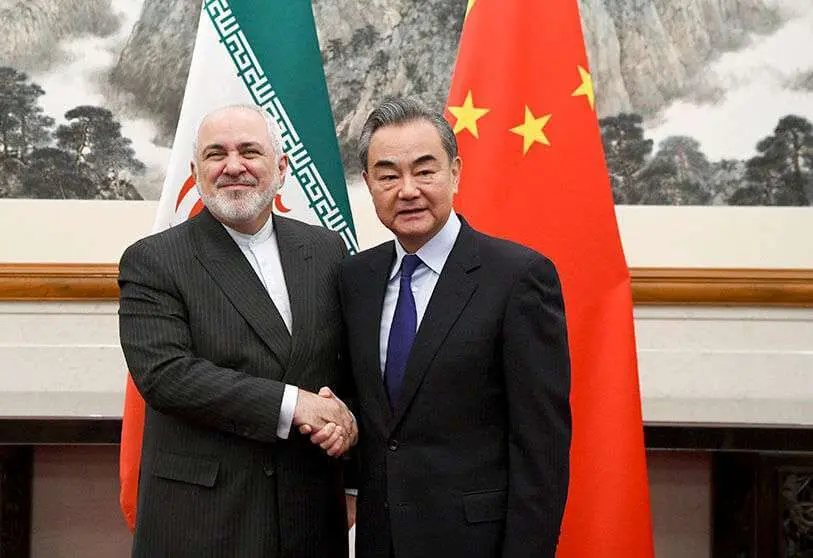Iran and China sign 25-year cooperation agreement

Chinese Foreign Minister Wang Yi arrived in Tehran on Friday to sign an agreement with Iran. In this way, the two countries are moving closer together in a new open front with the United States and the European Union, since both Tehran and Beijing are subject to sanctions from Washington and Brussels. "We believe that this document can be very effective in deepening relations between Iran and China," said the Iranian foreign ministry spokesman.
The visit comes on the heels of a meeting between Wang Yi and his Russian counterpart, Sergei Lavrov. "Relations between Russia and China are at their best, free of ideological ties, not subject to opportunism and not directed against anyone," Lavrov said, underlining the cordiality between the two countries. The meeting also criticised interference by the United States and the European Union in "internal affairs".
Earlier, Wang Yi had also met with US Secretary of State Antony Blinken. However, these talks between China and the US were not as amicable as those with Russia. Chinese officials accused Washington of inciting other countries to 'attack China', while Blinken declared that some of China's actions 'threaten the rules-based order that maintains global stability'.

Wang Yi's meeting in Tehran followed on the heels of his meeting with Sergei Lavrov. China and Iran have maintained friendly relations and in 2020 signed a strategic partnership agreement on trade, politics, culture and security. This new treaty strengthens relations between the two Asian countries and complements the previously signed pact. "This document is a comprehensive roadmap with political, economic and strategic clauses covering trade, economic and transport cooperation, with a special focus on the private sectors of the two sides," announced Saeed Khatibzadeh, spokesman for Iran's foreign ministry. Hua Liming, former Chinese ambassador to Tehran, stressed the importance of the Persian country in Chinese foreign policy matters. "Iran is a key state in the Belt and Road Initiative and a major oil exporter to China," Liming told China's Global Times. The Belt and Road Initiative, also known as the New Silk Road, is a mega-project developed by Xi Jinping that will cross several countries in Asia, Europe, Africa and the Middle East. The Chinese diplomat also referred to the US sanctions, which along with the COVID-19 pandemic, "are deeply affecting the country". "We are eager to strengthen cooperation to improve bilateral relations," he added.
One of new US President Joe Biden's foreign policy plans was to revive talks with Iran over the nuclear deal that Donald Trump abandoned in 2018. Iran insists on removing sanctions before continuing negotiations. This new rapprochement between China and Iran seems to truncate Biden's plans.

With this new pact between Beijing and Tehran, the foundations of the China-Russia-Iran axis are being consolidated and prepared to confront the United States and the European Union. Moreover, in recent months the three countries have conducted joint naval manoeuvres in the Indian Ocean. India has also joined in some of these operations. On the other hand, the Western bloc of the United States and the European Union is strengthening its position in order to face potential threats together. Joe Biden, during a virtual meeting of EU leaders, has declared his intention to "revitalise" relations between Washington and Brussels. Biden encouraged his European partners to "work together on shared foreign policy interests" and also mentioned "continued engagement" with Turkey. The EU has accepted a rapprochement with Erdogan's government, although the Turkish president has not welcomed the news. Ankara will have to choose which bench it prefers to be on, although it is worth noting its sympathy for Vladimir Putin, whom it defended against Biden's accusations of "murderousness". The two countries are also building a nuclear power plant in Mersin, southern Turkey.








